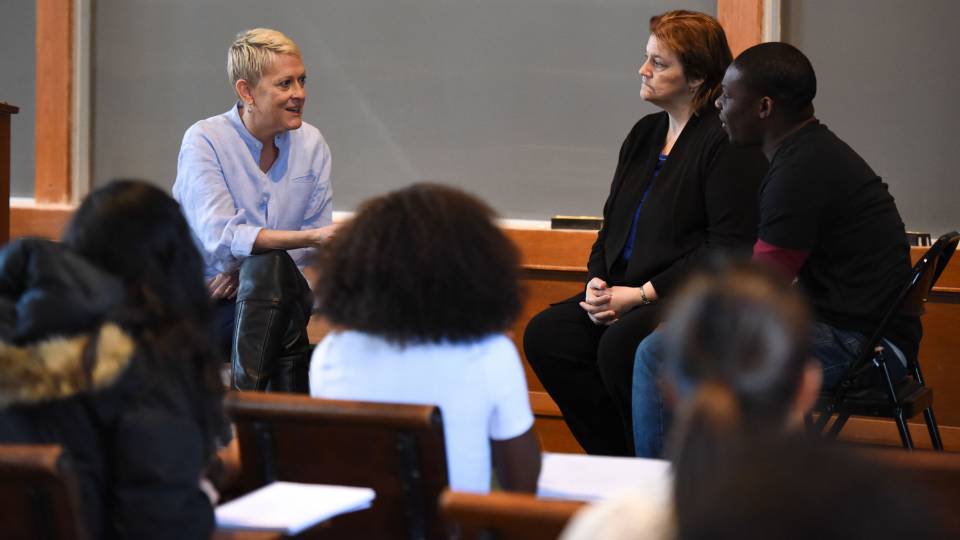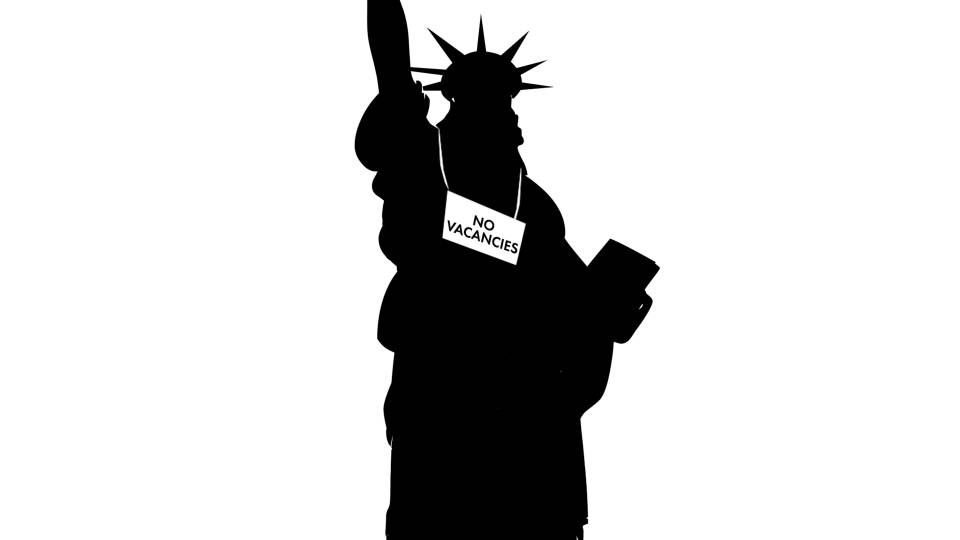More than fifty years after U.S. residents secured the right to guaranteed legal representation in criminal cases, the United States remains an outlier among wealthy democracies for not extending that same right in civil cases.

Janet Currie
Because legal representation in criminal cases is often considered a cornerstone of anti-poverty policy, a key, understudied question is whether legal representation in civil cases could improve outcomes for poor Americans.
In a working paper that studies the impact of a New York City program that guarantees legal representation to low-income tenants in housing court, Janet Currie, the Henry Putnam Professor of Economics and Public Affairs with Princeton’s Department of Economics and the School for Public and International Affairs (SPIA), and Michael Cassidy, a postdoctoral research associate at SPIA's Center for Health and Wellbeing, found that increases in legal representation lead to better outcomes for tenants in housing court.
"Our study shows the huge difference that access to legal representation can make in the lives of poor people, especially among people of color and for non-citizens," said Currie, who is the co-director of the Center of Health and Wellbeing.
Poverty cause and effect
Each year in the United States, landlords file more than 2.4 million eviction filings, ultimately evicting more than 900,000 households. Currie and Cassidy note that other researchers have found that evictions not only result from poverty, but also can cause it.
"Whatever are one's views about politics or social policy, a basic precept upon which we can all agree is that the participants in any contest deserve an equal playing field," said Cassidy. "Our study demonstrates that low-income households are immensely more successful in housing court once they're allowed to play by the same rules as their landlords."
Currie and Cassidy used detailed address-level housing court records to study the roll-out of New York City’s Universal Access program (UA), which happened gradually across targeted ZIP codes, from 2016 to 2019. Using this data, Currie and Cassidy were able to identify the program’s causal effects. All together, they examined 727,703 housing court cases.
They found that the UA program increased the likelihood that tenants in their sample had legal representation by 88%. By comparing outcomes within UA ZIP codes, they found eligible tenants who secured legal representation following the introduction of the program were 62% less likely to be subject to possessory judgments and 72% less likely to have eviction warrants issued against them. Participants also saw an 85% reduction in monetary judgements (i.e. back rent owed). Though not statistically significant in the full sample, they also found evidence that lawyers reduced the likelihood that evictions were carried out.
Importantly, Currie and Cassidy found larger effects of guaranteed representation in areas with larger shares of non-citizens and non-white residents. For this group, the reduction in executed evictions was statistically significant.
"These results suggest that a program targeting these areas could have even larger impact per dollar spent than one with universal ambitions," Currie and Cassidy wrote.
New York City’s UA program offers free legal representation in housing court to tenants whose income is at or below 200 percent of the federal poverty guideline, which was $43,920 as of 2021. This legal assistance is provided by non-profit agencies that contract with the city.
With UA, New York became the first city in the United States to promise broad legal services to tenants. Since then, other cities have implemented similar programs, including Newark, New Jersey, San Francisco, Philadelphia, Santa Monica, California, and Boulder, Colorado.
In New York City, where 68% of residents are renters, New York’s Civil Courts have created a special housing court in each of its five boroughs, as well as two additional smaller special courts in Harlem and Red Hook. In New York, 93% of housing court cases are eviction petitions.
The importance of empirical research
Though it seems likely, on the surface, that lawyers would improve tenant outcomes in housing court, there are scenarios where such a result isn’t obvious.
Because having a lawyer doesn’t address the reasons that lead a family to housing court, Currie and Cassidy say it’s "conceivable that having a lawyer may only delay the inevitable."
"In Price v. Turner (2010), the South Carolina Supreme Court noted that in some cases appointing a lawyer for the defendant could make the outcome 'less fair overall' by delaying payments to an injured party or by advantaging one poor person in a struggle against another slightly less poor person."
For these reasons, there have been two previous randomized controlled trials in Massachusetts to determine the effect of legal representation on tenant outcomes. Their findings were mixed, and the evaluations involved few tenants, suggesting that it is also important to look at the effectiveness of an actual program operating at scale.
The findings from New York City’s UA program, which is larger in scope and scale than the programs previously studied, provide further evidence that representation in civil procedures can have an important positive impact on the lives of poor people.




